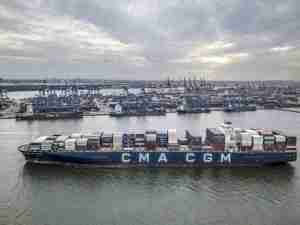Chief Executive Brian Molefe said that the company had recently managed to move 1.6 million tonnes of coal per week and expected to keep up the pace, while exports from the terminal had been around 1.4 million tons.
Coal producers in South Africa, including Anglo American, BHP Billiton , Exxaro , Optimum Coal and Xstrata, have long been eager to export more coal to meet rising demand from India and China.
"In the last three months we had record numbers of trains going to RBCT ... there are stockpiles at the terminal of around 5 million tons," Molefe told journalists, adding the company was exploring options to also transport coal to alternative ports around RBCT to ensure more shipments go out.
"Maybe we caught them (coal exporters) by surprise. I'm sure in the next few weeks they will catch their breath and ramp up their export capacity," he said, adding that the allocation of coal export capacity to emerging miners needed to be increased.
Transnet moved 63 million tons of coal to RBCT last year, far below the terminal's capacity of 91 million tonnes, but the logistics firm is investing heavily to raise capacity on the rail line to 81 million tons by 2015.
Swazi Link
The group also plans to free up an additional 14 million tons of capacity on the coal line by moving non-coal cargo to a new line via Swaziland.
The Swazi link, expected within six years, will cost around 12.3 billion rand ($1.55 billion).
Some 7.3 billion of that will be financed by Swazi Rail, and Molefe said its counterpart in the landlocked African state was confident it would find the money to build the link, despite the impoverished country's current economic woes.
Molefe also said a planned rail link to the Waterberg coal fields would be completed within the same six-year period and would carry over 20 million tons of coal per year.
Waterberg is expected to become the country's next coal hub and supply domestic power plants and exports as reserves in the Witbank area near depletion.
For years Transnet and the private sector have been discussing the option of using public-private partnerships (PPPs) to up volumes on the coal, iron ore or manganese lines, but Molefe said the company should be able to do it on its own.
"I don't see much scope for PPPs on those lines because our performance is good and we are improving volumes quite rapidly. One shouldn't temper with what is not broken," he said.
The company is working to expand the capacity on the iron ore line to 60 million tonnes from 47 million, and Molefe said the company is already studying the option of expanding the line beyond that, going up to 70-80 million tons a year.
Molefe said Transnet had just signed a 6 billion rand loan facility with the African Development Bank, and he saw no problems in raising funds needed for future expansion. (Reuters)
Stateowned Transnet said its earnings before interest, tax, depreciation and amortisation (EBITDA) for the six months to end-September rose 27 percent to 9.4 billion rand, while revenue was up 20 percent to 22.4 billion rand.








